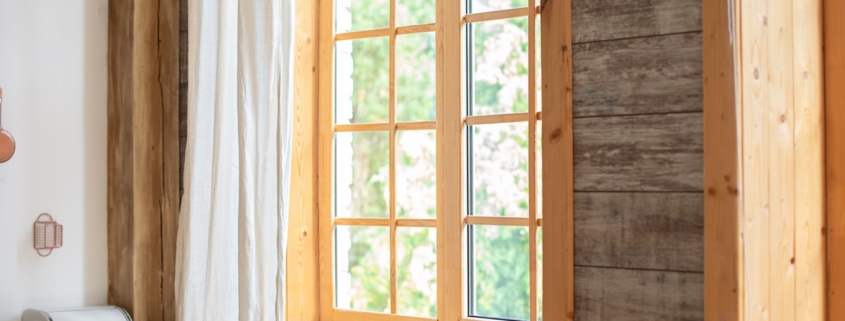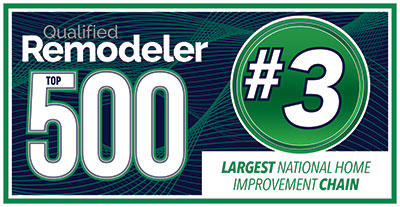Should You Buy Wood Windows For Your Home?
Wood windows have long been popular for homeowners due to their classic beauty and timeless appeal. However, there are several reasons why you might want to think twice before opting for wood replacement windows. In this article, we will explore the drawbacks of wood windows, their impact on home efficiency, and discuss some alternatives that might better suit your needs.
Understanding the Nature of Wood
Before delving into the disadvantages of wood windows, it’s important to understand the composition and vulnerability of this material. Wood is a natural product susceptible to the elements and requires consistent maintenance to ensure its longevity.
Wood has been used as a building material for centuries due to its unique properties. It comprises cellulose fibers held together by lignin, making it comparatively weaker than other window materials such as vinyl or aluminum. This natural composition gives wood its characteristic warmth and beauty, but it also means that it is more prone to warping, cracking, and rotting when exposed to moisture.
When wood windows are exposed to moisture, whether it be from rain, humidity, or condensation, they can absorb the water and swell. This swelling can cause the wood to warp and distort, compromising the window’s structural integrity. Over time, this can lead to gaps and leaks, allowing air and water to infiltrate the home.
Furthermore, the impact of weather on wood windows cannot be underestimated. Direct exposure to sunlight, rain, and fluctuating temperatures can cause the wood to expand and contract. This constant movement stresses the joints and seals of the window, increasing the likelihood of damage and deterioration. The expansion and contraction can also lead to gaps between the window frame and the wall, allowing drafts to enter the home and compromising energy efficiency.
Wood windows require regular maintenance to protect them from the elements. This includes periodic painting or staining to create a protective barrier against moisture and seal any cracks or gaps that may develop over time. Neglecting these maintenance tasks can accelerate the deterioration of the wood, reducing the lifespan of the windows.
The Drawbacks of Wood Windows
While wood windows offer a natural aesthetic, several key drawbacks include maintenance requirements, cost factors, and environmental considerations.
Maintenance Requirements for Wood Windows
Maintaining wood windows can be a time-consuming and costly endeavor. They require regular painting or staining to protect against moisture and UV damage. Failure to do so can result in rot, compromising the windows’ structural integrity.
Furthermore, wood windows are susceptible to insect infestations, such as termites and carpenter ants. These pests can cause significant damage to the wood, leading to the need for costly repairs or even window replacement.
Additionally, wood windows may require periodic resealing to ensure proper insulation and energy efficiency. This process involves applying a protective sealant to the wood frames and sashes, which can be labor-intensive and add to the overall maintenance costs.
Costs
They are more expensive than alternatives such as vinyl or aluminum due to the cost of materials and labor-intensive manufacturing processes. The natural beauty and durability of wood come at a premium price. Moreover, the initial cost of purchasing and installing wood windows is only part of the equation. Ongoing maintenance and potential repairs further increase the long-term cost of ownership. Homeowners must budget for regular painting or staining, as well as the occasional need for professional repairs or replacements.
The potential impact on property value is also worth considering. While wood windows can enhance a home’s curb appeal and attract potential buyers, the higher upfront and maintenance costs may deter some individuals from choosing properties with wood windows.
The Environment
Despite their natural appeal, they have certain environmental drawbacks. Wood window production requires tree harvesting, which can contribute to deforestation and habitat destruction. However, sustainable forestry practices and the use of certified wood can help mitigate these concerns.
Additionally, regular maintenance and painting often involve using chemical products that can harm the environment. Homeowners should carefully consider the environmental impact of their window choices and explore eco-friendly alternatives if sustainability is a priority.
Furthermore, wood windows may not be as energy-efficient as other window materials. While wood provides natural insulation, it can also expand and contract with temperature changes, potentially compromising the window’s seal and reducing energy efficiency. Proper installation and regular maintenance can help mitigate these issues.
Poor Efficiency
When choosing windows for your home, there are several factors to consider. While wood windows have their own unique charm and aesthetic appeal, it is important to also take into account their impact on energy efficiency and noise insulation.
Wood windows, although beautiful and timeless, may have some drawbacks when it comes to energy efficiency. Wood windows generally have lower thermal efficiency than their vinyl or aluminum counterparts. This means they may not be as effective in keeping the heat inside during the winter or preventing the heat from entering during the summer. As a result, you may experience higher energy bills and reduced indoor comfort, especially in extreme weather conditions.
In addition to their thermal efficiency concerns, wood windows are prone to air leakage. This means they may allow drafts to enter your home, compromising its energy efficiency. These drafts can result in uncomfortable temperature fluctuations and make it harder for your heating or cooling systems to maintain a consistent and comfortable indoor environment.
Another aspect to consider is the noise insulation properties of wood windows. While wood is a solid material, its composition and susceptibility to warping may affect its ability to block out external noise effectively. Wood windows may not provide adequate soundproofing in areas with high noise pollution, such as busy streets or near airports. This can lead to disturbances in the home environment, making it harder to relax, concentrate, or enjoy a peaceful night’s sleep.
It is worth noting that there are ways to improve the energy efficiency and noise insulation of wood windows. Adding weatherstripping or caulking can help reduce air leakage and improve thermal efficiency. Additionally, double or triple-pane offset glass can enhance the soundproofing capabilities of wood windows, minimizing the impact of external noise.
When choosing wood windows, one should consider their visual appeal and potential impact on energy efficiency and noise insulation. By understanding these factors and exploring ways to mitigate any drawbacks, you can make an informed choice that aligns with your priorities and enhances the overall comfort of your home.
Wood Window Alternatives
If you’re looking for windows that offer similar aesthetics while addressing the drawbacks of wood, there are a few alternatives worth considering.
Benefits of Vinyl Windows
Vinyl windows are popular due to their durability, low maintenance requirements, and energy efficiency. They resist rot and insects and do not require painting or staining. Vinyl windows are also typically more affordable than wood windows.
Advantages of Aluminum Windows
Aluminum windows are known for their strength, durability, and sleek modern appearance. They are lightweight, resistant to corrosion, and require minimal maintenance. Additionally, aluminum windows often have superior energy efficiency ratings.
Making the Right Choice for Your Home
When deciding between wood windows and alternative materials, it’s crucial to assess your home’s specific needs and consult with window professionals.
Assessing Your Home’s Needs
Consider your location, climate, architectural style, and personal preferences. These aspects will help you determine which window material best complements your home and meet your functional requirements.
Consulting with Window Professionals
Reach out to window professionals who can provide expert advice and help you navigate the various options. They can assess your home’s unique characteristics and guide you toward the most suitable window solutions.
In closing
While wood windows offer undeniable visual appeal, they have significant drawbacks regarding maintenance requirements and cost. Their impact on home efficiency and noise insulation further raises concerns. Considering alternatives such as vinyl or aluminum windows allows you to balance aesthetics, functionality, and long-term value for your home.
Window Depot USA of Tyler, TX, combines premium grade replacement window products with factory-direct pricing, a Transferable Lifetime Limited Warranty, and professional, courteous installation to offer the very best value in the industry today! Call us at (903) 752-0449 for a free, no-obligation quote, and find out firsthand what sets Window Depot of Tyler, TX, apart from the rest of the crowd. We’d be honored by the opportunity to earn your business!
Our service area includes the following towns: Tyler, Whitehouse, Bullard, Lindale, Chandler, Canton, Mineola, Longview, Kilgore, Henderson, Gilmer, Gladewater, Marshall, Hallsville, and Palestine.









